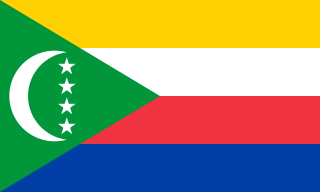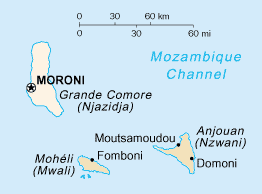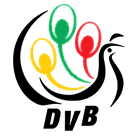| Culture of the Comoros |
|---|
 |
| History |
| People |
| Languages |
| Religion |
Music and performing arts |
Symbols |
This article needs to be updated.(November 2010) |
As recently as the early 1980s, the Comoros had no national media. State-run Radio Comoros, transmitting from Grand Comore, was not strong enough to send clear signals to the republic's other two islands.

The Comoros, officially the Union of the Comoros, is an island country in the Indian Ocean located at the northern end of the Mozambique Channel off the eastern coast of Africa between northeastern Mozambique, the French region of Mayotte, and northwestern Madagascar. The capital and largest city in Comoros is Moroni. The religion of the majority of the population is Sunni Islam.

Grande Comore is an island in the Indian Ocean off the coast of Africa. It is the largest island in the Comoros nation. Most of its population is of the Comorian ethnic group. Its population as of 2006 is about 316,600. The island's capital is Moroni, which is also the national capital. The island is made up of two shield volcanoes, with Mount Karthala being the country's highest point at 2,361 m (7,746 ft) above sea level. According to the 2009 revision of the constitution of 2002, it is governed by an elected Governor, as are the other islands, with the federal government being much reduced in power. The name Ngazidja is sometimes seen in the now nonstandard form Njazidja.
Contents
In 1984 France agreed to provide Radio Comoros with funding for an FM (frequency modulation) transmitter strong enough to broadcast to all three islands, and in 1985 made a commitment to fund a national newspaper after a United Nations Educational Scientific and Cultural Organization (UNESCO) study revealed that the Comoros was the only UN member lacking print and electronic media. A state-owned newspaper, Al-Watwan, began operations in July 1985, first as a monthly and soon afterward as a weekly. There are now a number of publications, either daily, such as La Gazette des Comores, or weekly, such as L'Archipel, an independent weekly which began publishing in 1988 and now appears intermittently. Al Balad, a daily published by CGH, is now defunct.

The United Nations Educational, Scientific and Cultural Organization is a specialized agency of the United Nations (UN) based in Paris. Its declared purpose is to contribute to promoting international collaboration in education, sciences, and culture in order to increase universal respect for justice, the rule of law, and human rights along with fundamental freedom proclaimed in the United Nations Charter. It is the successor of the League of Nations' International Committee on Intellectual Cooperation.
Al-Watwan is a Comorian daily newspaper published in French and Arabic, headquartered in Moroni, Comoros.
A news agency, Agence Comores Presse, is based in Moroni.
In addition to national broadcasts on FM in Comorian, Swahili and French, Radio Comoros in 1993 broadcast internationally on the shortwave band in Swahili, Arabic, and French, but shortwave services have now been suspended. There are a number independent commercial FM radio stations in the country, Radio Tropique FM, one of the first, began broadcasting in 1991, although it and its director, political activist Ali Bakar Cassim, have occasionally been the object of government ire.
The ORTC (Office de Radio et Télévision des Comores), whose studios were funded by the Chinese government, now broadcasts both radio and television both free to air nationally and by cable and satellite in France.
In 1989 the Comoros had an estimated 61,000 radios and 200 television sets.




